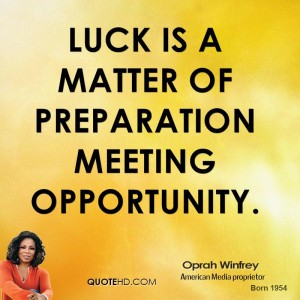Well, we’re one week out from the shocking US Presidential election that has left so many devastated. I’m personally just starting to claw myself out of a well of despair. Attending a poetry reading Friday night at Hugo House helped, as did a reassuring note from my agent that a Trump presidency doesn’t spell the demise of the publishing industry. Although I refuse to call things back to normal in America, it does make sense for us writers to get back to work as we feel able, for the good of the country and for our own sanity. Writing CAN make a difference. And since you sometimes need an agent to help you get your words out into the world, let’s talk about a truly exciting part of the agent search: acing a phone call with someone who’s interested in representing you.
When Opportunity Knocks, Be Ready
Most of the time, an agent will want to schedule the call in advance, but a few go getters may ring without warning, so make sure you’ve done your homework regarding the agents you’ve queried. Also, learn as much as you can about how the publishing world works early in the submission process so that you’re not totally unprepared if a call takes you by surprise. Like Oprah says…
For the purposes of this post, however, let’s assume you have some prep time before a scheduled call. After you jump up and down and scream for joy and maybe eat a cookie because an agent wants to chat, what should you do?
First of all, do a fresh round of the research on the agent.
Review the agent’s website. Read any interviews they’ve given or articles they’ve published. Check YouTube for videos. Google madly.
If you’ve purchased a Publishers Marketplace membership as I suggested in a previous post, go to PW now and check out the agent’s sales history. Has the agent sold any books recently? If not, why not? Have they sold any books in your category lately? Have they sold multiple books for the same author? (Hint: That may be important if you’re looking for a long-term career partner.) Also, see how many clients the agent has. Will they have plenty of time to devote to you, or be spread thin? Skim the agent’s client list — is there anybody you know/could reach out to and see if they are satisfied with their representation?
Of course, not all agents contribute data to PW, but for those who do, you’ll find the site a useful source of info that can help you identify areas you want to address during the call. And if you’re lucky enough to have more than one agent vying for your attentions, be sure to use PW to compare their profiles.
Amazingly, I had two agent phone calls to prepare for this summer. A review of PW’s data revealed that one of them had sold several memoirs to small presses — publishing houses with typical advances of $5K or so that I knew I didn’t need an agent to approach. This was useful info to have in my back pocket, since I’d prefer not to share a tiny advance with an agent if I don’t have to! Plus, my dream is to have the support of one of the Big 5, so as I went into my calls, I wanted to determine if either/both of the agents shared my big vision.
Next, draft a list questions.
I wish I’d saved my questions, but I tossed them right after I made my agent decision. As always, I googled obsessively to prepare (ie “literary agent call”and “what to ask a literary agent before signing.”) I read tons of posts on asking the right questions. For example, the site kidlit.com has a great basic list:
1. What is your communication style? Do you prefer phone or email? Do you check in often even when we’re not on active submission?
2. Tell me more about how your agency works and handles clients. Is there an agency agreement for new clients? (There usually will be, it’s okay to ask to see it beforehand.) What are steps for termination? (You hope it doesn’t happen, but you need to know that you have an out if you need it.)
3. Are you a member of AAR? (The Association of Author Representatives. Member agencies agree to abide by a code of ethics. Their website is www.aaronline.org.) NOTE: I wouldn’t waste time asking this — this is part of your research!
4. What books have you sold and what publishers do you work with? AGAIN: I think you should do your homework here, and instead of asking what the agent has sold, maybe ask some more specific questions related to those titles. For example: I saw on Publisher’s Marketplace that you recently sold a debut novel at auction. I’m also a new author, so maybe you could tell me a little about how that successful deal came about…
5. What is your submission strategy? Do you go on a big round to editors or do you do smaller rounds that let us hear feedback and make changes, should we need to?
6. How would you position this book to editors? Where do you see this fitting in to publishers’ lists?
7. What editorial changes do you think I should make to this manuscript?
8. What happens if we don’t sell this book?
Additional questions that I recall adding to my list include:
Why do you want to represent my memoir?
After I finish this book, I’d like to write a novel. Assuming we have a good experience working together on the memoir, what is your experience in placing debut fiction?
Do you have an assistant? If so, will I be dealing with the assistant or directly with you most of the time?
I went into my calls highly prepared, but here’s the thing: I didn’t really need to ask most of these questions. Agents conduct these calls all the time, and they have a good sense about what authors want and need to know. Both of the women I spoke to immediately told me why they wanted to represent my book, volunteered backstory on how they got into the industry, and the conversation flowed from there. But I was glad I had my question list, which ensured I had a cheat sheet to calm my nerves and a checklist to consult so that the call covered everything I wanted to know.
Go into the conversation with a clear — but not rigid — vision for your book and your career.
As writers, we deal with so much rejection that it’s easy to collapse in a heap of gratitude should an agent actually offer us the time of day, BUT if you’ve reached this stage of the process, it’s critical that you have a strong vision for your project and your career. Every agent is not a good agent. Every good agent is not a good match for every writer. Now is the time to put your insecurities aside and remember you have something to offer or the agent wouldn’t be pursuing you. This is a potential business partnership. Think it through and don’t just say yes.
As I mentioned above, I’m holding on to a big vision for my memoir, and so I was thrilled when one of the agents I spoke with articulated a similarly big vision. I loved her submission philosophy also: work and work on the material until it feels absolutely ready, and then go big and wide, to the “top” of publishing.
The agent I chose not to partner with also seemed likable and smart, but during our call she said she wanted to take my material out immediately to editors at both large and small presses at once. This made me feel like her strategy leaned more to a fast deal vs the best deal, which didn’t sit right. Also, she encouraged me to edit my proposal to expand on the market potential for my book among a certain audience of readers — an audience that others in the publishing industry had told me was small, small, small. This made me feel like the agent hadn’t really done her homework. Perhaps if she’d been the only one to an extend an offer I would have tried to talk through these issues and possibly signed with her, but because I had an offer that felt perfect in every way, my choice was clear.
All that said, the ideal agent brings experience to the table that complements your own. The ideal agent also can be more objective about a book and its prospects than you, the writer. Having a clear vision about your book is critical for finding the right champion, but at the same time, you have to remain open to feedback from someone who is an expert in the field. Again, it all comes down to educating yourself, and then trusting your gut to leap in the right direction.
Finally, set yourself up for success in the moment.
This could be the call of a lifetime, so optimize conditions around appointment time as much as possible. As I said earlier, I conducted my agent search over the summer, so when it came time to have conversations with interested agents, I was dealing with kids home on summer vacation. My children are teens, so you might think that they would refrain from bothering me while I’m on the phone, which would mean you’ve never parented a teenager.
I couldn’t take the risk.
For my calls, I got out of the house. I drove to a beautiful park in my neighborhood and parked my Volvo in a spot where the view was lovely and spent 15 minutes on deep breathing and meditation so that I was calm and ready when the phone rang. Not all of us have the luxury of getting away, but do what you can. If you have young kids, try to hire a sitter at call time or set the kids up with a movie. If you work full-time, try to set up the call for the start of the day or lunchtime, and maybe take it away from the desk where you’re a lawyer/administrator/ salesperson etc. Claim some space and privacy, and do your best.
When the phone rings, take a breath. Say hello. You’ve got this.
In case you missed my previous posts on Finding a Literary Agent, check out:
On Being a Late Bloomer: AKA “I finally got a literary agent”
Finding a Literary Agent: How do you decide who to query?
Finding a Literary Agent: Writing and personalizing the query letter
Finding a Literary Agent: Plotting your submission strategy



